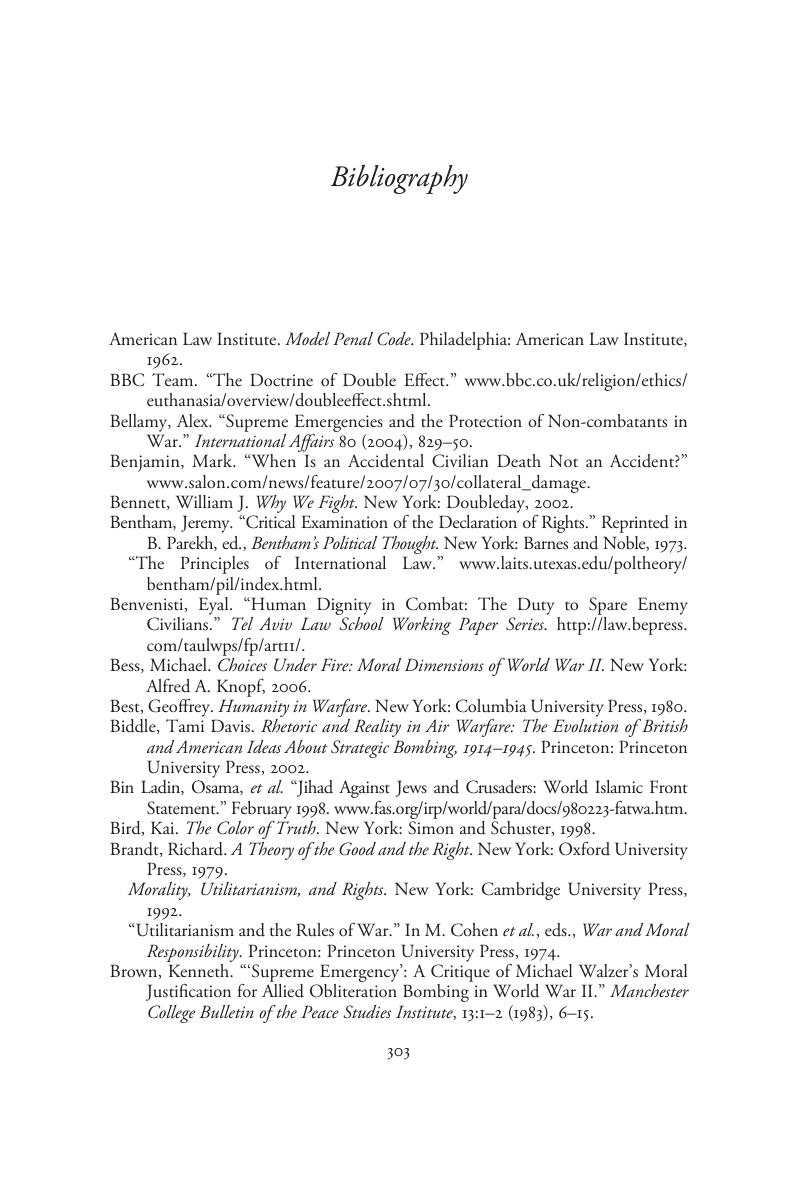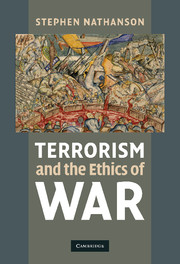Book contents
- Frontmatter
- Contents
- Acknowledgments
- Introduction
- PART I TERRORISM: WHAT'S IN A NAME?
- PART II WHY MORAL CONDEMNATIONS OF TERRORISM LACK CREDIBILITY
- PART III DEFENDING NONCOMBATANT IMMUNITY
- PART IV HOW MUCH IMMUNITY SHOULD NONCOMBATANTS HAVE?
- Conclusion: terrorism and the ethics of war
- Bibliography
- Index
- References
Bibliography
Published online by Cambridge University Press: 05 June 2012
- Frontmatter
- Contents
- Acknowledgments
- Introduction
- PART I TERRORISM: WHAT'S IN A NAME?
- PART II WHY MORAL CONDEMNATIONS OF TERRORISM LACK CREDIBILITY
- PART III DEFENDING NONCOMBATANT IMMUNITY
- PART IV HOW MUCH IMMUNITY SHOULD NONCOMBATANTS HAVE?
- Conclusion: terrorism and the ethics of war
- Bibliography
- Index
- References
Summary

- Type
- Chapter
- Information
- Terrorism and the Ethics of War , pp. 303 - 313Publisher: Cambridge University PressPrint publication year: 2010



